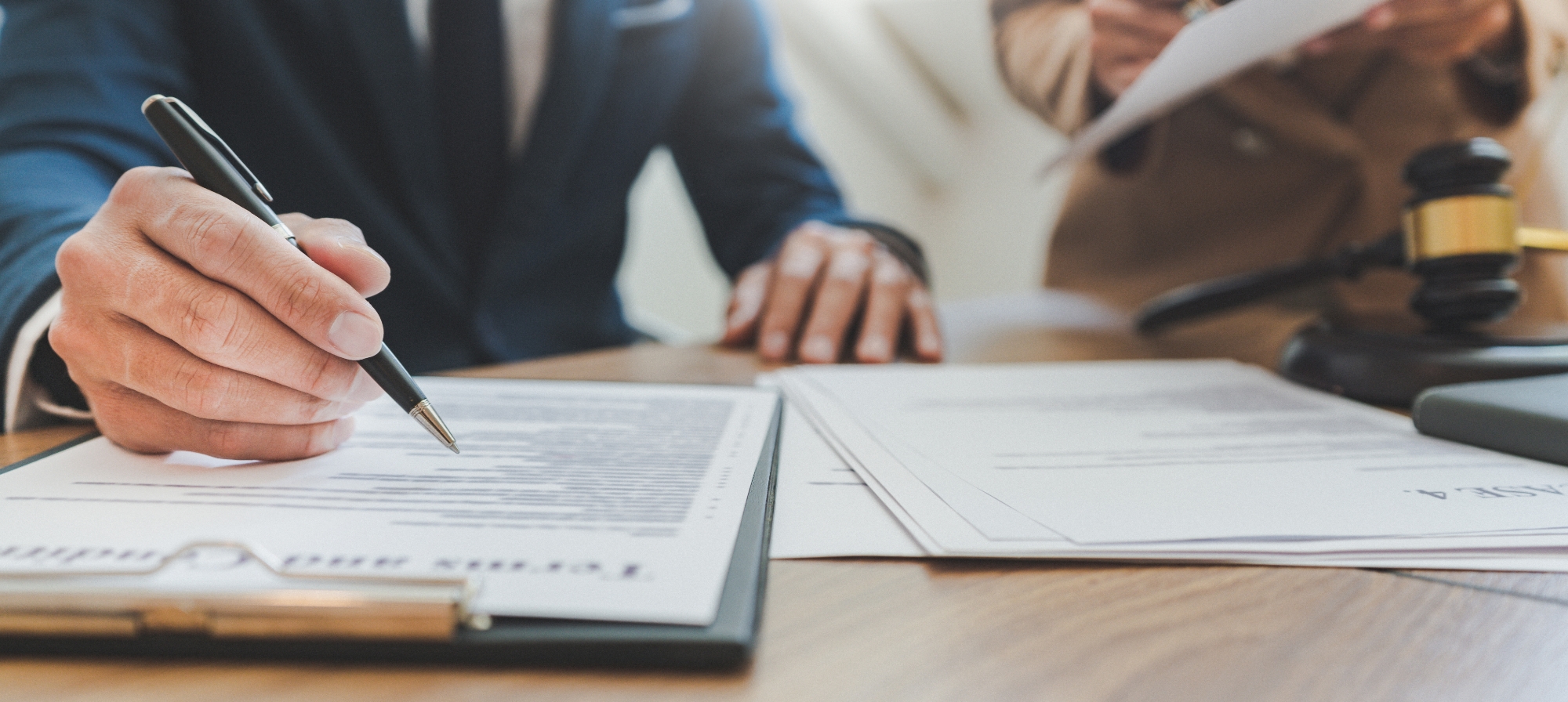Your Personal Injury Lawyer Could Mean the Difference Between $15,000 and $400,000
I regularly handle cases from people who come to Crosley Law Firm after working with another attorney. In one case, a lawyer was pressuring a car wreck victim to accept a $15,000 settlement even though that didn’t come close to covering her medical costs and financial losses. Her friend encouraged her to call me, I took on her case, and I ended up helping that client get a $400,000 settlement.
Your lawyer matters. And a successful personal injury claim can provide lots of benefits:
- Peace of mind
- Getting the medical treatment you truly need without having to fight over every bill
- Making it through the complex healthcare system without having to go into debt
- Getting compensation for the work you have missed and that you will miss in the future
If someone else’s careless behavior caused your injuries, you deserve all of that and more.
Unfortunately, the insurance companies aren’t going to help you get everything you deserve. You need a qualified and experienced personal injury attorney who can devote their full attention to your claim, fight for you in negotiations with the insurance company, and even take your case all the way to trial if it comes to that.
RELATED: Why You Shouldn’t Hire the Lawyer You See Advertised All Over
But what if you’ve got a bad feeling about your lawyer once you’re six months, nine months, or even a year into your case?
Should you fire your lawyer?
Can you fire your lawyer?
Yes, you can fire your personal injury lawyer, and I have a list of five warning signs that might lead you to consider firing your lawyer along with some information about how to address these issues or find new representation.
Warning Sign #1: Lack of Communication
You should always know where your claim stands, what is going on with your case, and who is working on it. You should be able to call your attorney and speak with them or at least get a prompt appointment if he or she is busy when you call. You should be able to get your questions answered clearly and quickly.
If you’ve never talked to your attorney after your initial consultation, that should raise a bit of a red flag. And if you keep getting the runaround when you try to get in touch with your attorney, that should definitely set off alarms.
As an attorney, I can tell you that we do get very busy. But here at Crosley Law Firm, our clients always come first. We might be tied up when you call, but you’ll be able to talk to one of our outstanding staff members who can look at our schedule and arrange a time for me or your attorney to meet with you or call you as soon as we can.
We invest all our time and energy into helping our clients, and your lawyer should too. If you’re feeling distanced from your case, try to reach out. Sometimes a quick phone call or meeting can help clear up any miscommunications.
But if your attorney can’t make time to see you, it might be time to start looking for a personal injury lawyer who can.
“You should always know where your claim stands, what is going on with your case, and who is working on it. You should be able to get your questions answered clearly and quickly.”
Warning Sign #2: Unprofessional Conduct
Sometimes, it’s easy to tell when it’s time to fire your attorney. If they are unprofessional and show a lack of dedication to your case, you should probably start looking for a new lawyer.
Unprofessional conduct from an attorney includes things like:
- Missing or showing up late to meetings and other important appointments
- Not having documents filed by the deadline, filing the wrong paperwork, or filing paperwork incorrectly
- Making important decisions without asking you first
- Not returning your calls
- Having a conflict of interest in the case
- Not working on your case at all
If your attorney is being unprofessional, it’s a sure sign that you need to look for a new personal injury lawyer.
“If your attorney is being unprofessional, it’s a sure sign that you need to look for a new personal injury lawyer.”
Warning Sign #3: A Lack of Understanding About Your Case
People often lump lawyers into one big category, but there are many different areas of the law. Some lawyers focus on personal injury or criminal law, while others focus on estate planning or family law. Some lawyers even narrow their focus down further and become a true specialist.
For example, I am Board Certified in Personal Injury Trial Law by the Texas Board of Legal Specialization. Only about 7% of lawyers have met the requirements for becoming Board Certified. I am also Board Certified as a Civil Trial Advocate by the National Board of Trial Advocacy.
There’s nothing stopping most lawyers from trying their hand at your personal injury case, but not all lawyers focus on personal injury law, and only a few specialize in it. If your lawyer hasn’t successfully handled many personal injury cases in the past, you might want to explore other options, especially if you detect any of the other warning signs on this list.
“I am Board Certified in Personal Injury Trial Law by the Texas Board of Legal Specialization. Only about 7% of lawyers have met the requirements for becoming Board Certified.”
Warning Sign #4: Your Attorney Isn’t Compassionate and Empathetic
There’s something to be said for the attorney who simply gets the job done, but you should also feel like your lawyer cares about you and what you are going through.
The nature of personal injury law means that my clients often come to me after suffering horrible injuries or even the death of a loved one. Those are not situations that should be taken lightly, and I am always humbled by my clients’ stories and what they have lived through.
You don’t need to be best friends with your attorney, but your lawyer should be able to identify with you. Throughout your case, they will need to clearly communicate your pain, suffering, and losses to the insurance company, to other attorneys, and even to a jury if your case goes to trial.
If you don’t think your attorney really understands what you have gone through, you may want to consider other options, especially if they are not communicating with you or they lack professionalism.
“You don’t need to be best friends with your attorney, but your lawyer should be able to identify with you.”
Warning Sign #5: Your Attorney Is Outright Lying to You
This doesn’t happen often, but it does happen. Sometimes personal injury victims hear all sorts of good news from their attorney about how things have been going. Then they find out that nothing has actually been done on their case.
Other times, the client finds out that their case actually isn’t going well. Maybe a low settlement offer comes in and they get pressured to take it. Maybe they suddenly find out about a conflict of interest. Maybe their lawyer missed an important deadline and “forgot” to let the client know.
Whatever the case may be, if your lawyer has misled you or lied to you about your case, you should start looking for a new attorney. Your lawyer should be candid with you at all times, and there’s no excuse for dishonest behavior from an attorney toward their client.
“If your lawyer has misled you or lied to you about your case, you should start looking for a new attorney.”
This Is Important: Your Lawyer Probably Won’t Want to Get Fired
In Texas, your lawyer is required to have a signed agreement or contract for contingent fee arrangements such as personal injury cases. Part of that agreement includes your lawyer getting a certain percentage of the total settlement or award if you win your case, even if they aren’t your lawyer anymore when that happens.
On the one hand, this agreement protects good lawyers who invest a lot of time and money into your case. In an extreme example, a client could let a lawyer spend a year and a half getting all the way to a great settlement offer. Then, the client could fire their lawyer and take the settlement for themselves without paying attorney fees and case expenses. A contingent fee agreement helps prevent this from happening.
On the other hand, if your lawyer is not meeting your expectations, they are still going to want to get paid for any work they did on your case because you have an agreement with them.
Typically, you need “good cause” to fire your attorney and get out of any contract or agreement you have with them. If you’re speaking with other attorneys, those attorneys can advise you about whether this is possible based on your specific situation.
Issues that might come up in that discussion would include examples of the behaviors listed above. For example:
- When did you try to contact your lawyer? When did they respond, and when did they not respond?
- When were they late to meetings or appointments? When did they miss appointments?
- When did they miss deadlines? Did they file the wrong paperwork? If so, when?
- What mistakes did they make in your case?
- What conflicts of interest do they have in your case?
- What decisions did they make? Did they consult with you about them?
- How have you been treated unprofessionally?
- How were you misled about the progress, prospects, or outcome of your case?
The more specific and detailed your answers to these questions can be, the better, which is one of many reasons why it’s always a good idea to keep a record of all your conversations and interactions with your attorney.
So, How Do You Fire Your Lawyer?
As soon as you get a bad feeling about your lawyer, you should start documenting examples of unprofessional conduct or negative behavior. Sometimes wires do get crossed and you can straighten things out. Other times, your lawyer simply may not be the best person for your case.
Once you have a list of your concerns, you will want to call your attorney and schedule a meeting before you make any final decisions. The goal for that meeting should be to preserve the relationship, clear up any miscommunications, and make sure everyone is on the same page.
If your attorney can’t make that meeting happen or you don’t see any improvement after that meeting, it’s probably a good sign that you need to move on. Here is some advice to help you prepare for firing your lawyer:
- Put as Much in Writing as Possible Send a professional letter to your lawyer summarizing what your concerns are and informing them that you would like to terminate your professional relationship. List important details in that letter about their conduct and why it has led you to your decision.
- Be Reasonable and Professional While you may be upset with your lawyer by the time you decide to fire them, you should always remain professional. Most lawyers care about their reputation and really do want what is best for their client, even if they can’t deliver it themselves. If you are reasonable and professional as you end your relationship with your attorney, they will often pass along your case in the same way.
- Make Sure You Have Talked to a Knowledgeable, Experienced Personal Injury Attorney About Your Situation It’s one thing to get advice from friends, family, or acquaintances about finding new representation for your personal injury claim. But your case may involve complex details that make it especially challenging.
A knowledgeable, experienced personal injury attorney can evaluate the merits of your case and give you candid advice about what you should do. They might even be able to work with your previous attorney to reach an agreement that works for everyone so you don’t have to deal with firing a lawyer all on your own.
Crosley Law Firm: Experienced, Professional San Antonio Personal Injury Attorneys
If you have been injured or lost a loved one because of someone else’s carelessness, you deserve justice and compensation. At Crosley Law Firm, we always put our clients first. We also offer free consultations so we can answer your questions and give you candid advice about what your best course of action is moving forward.
If you’d like to speak with me or one of our attorneys, please call 210-LAW-3000 | 210-529-3000 or fill out a brief contact form online.
References
Texas Board of Legal Specialization. (2017). Connect with a Board Certified Texas attorney. TBLS.org. Retrieved from http://www.tbls.org/Default.aspx
The content provided here is for informational purposes only and should not be construed as legal advice on any subject.









